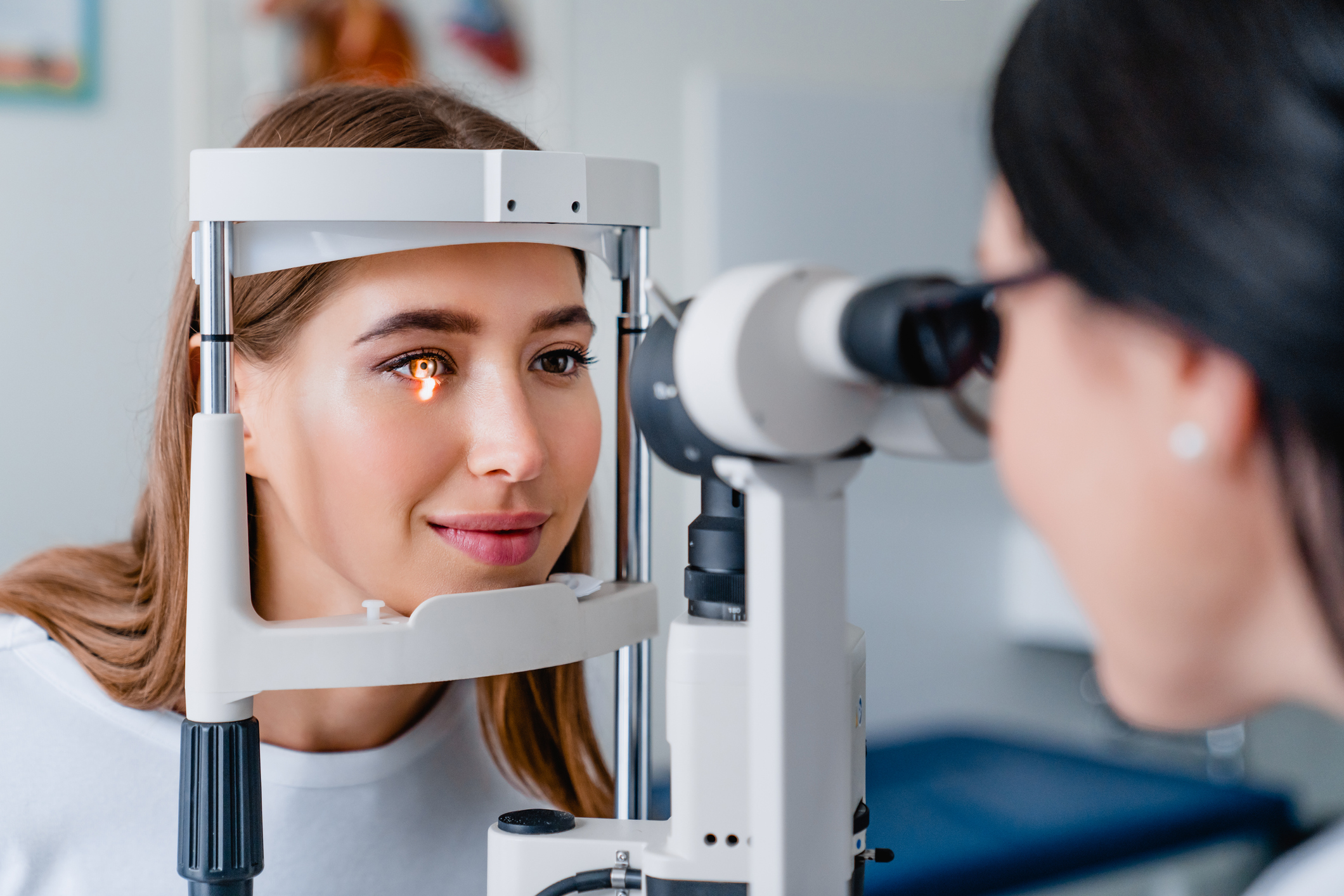Our dossiers on vision
Optical solutions

Poor eyesight can be caused by a visual disease or a visual defect requiring treatment.
In both cases, and depending on the context, the health professional may prescribe an optical correction following an ophthalmological examination.
Prescription glasses
Corrective lenses are prescribed by the ophthalmologist after an eye examination to determine the best possible optical correction.
A prescription for glasses is valid for 3 years, if the patient is over 16, and unless specific conditions have been established by the prescriber.
There are different lenses applied to corrective lenses, depending on the visual defect to be corrected:
- Divergent lenses for myopes (negative lenses)
- Convergent lenses for hypermetropes (positive lenses)
- Toric lenses for astigmatism
- Convergent lenses for presbyopes.
Several lens materials are available, affecting weight, strength, aesthetics and eye protection (UV filter):
- Organic: light and resistant, based on synthetic resin.
- Polycarbonate: very light and very strong, filters out all UV rays, based on synthetic material.
- Mineral: rarely used any more as it has been replaced by organic materials, easily broken.
Additional coatings can be added to corrective lenses:
- Anti-reflective
- Anti-scratch
- Anti-fog
- Anti-UV
- Anti-blue-violet light
The lenses may also be tinted, but this has no impact on UV filtration:
- No tint
- Solar tint
- Tints for sport
- Tints suitable for the specific needs of low vision
- Variable tint: adapts to light conditions
Contact lenses
Contact lenses are prescribed by the ophthalmologist following an ophthalmological examination.
A prescription for contact lenses is valid for 1 year.
Wearing contact lenses requires careful adaptation by the health professional, as well as perfect hygiene and regular monitoring, in order to avoid any complications that could be damaging to the eye and vision.
When contact lenses are not worn, glasses must be.
There are 2 types of contact lenses:
- Soft lenses: daily lenses, frequently replaced, and traditional lenses.
Rigid lenses - Soft lenses offer immediate comfort.
- Rigid lenses are recommended for people who naturally lack tears.
Adapting to wearing contact lenses can be tricky, as not all patients can tolerate them. The ophthalmologist and optician help patients with this adaptation process.
Hygiene when wearing contact lenses must be perfect, to avoid complications:
- Thorough cleaning of lenses.
- Hand hygiene.
- Proper lens replacement.
- Compliance with the medical prescription for cleaning products.
Opticians
Opticians are health professionals whose main task is to advise on, fit and inspect all optical equipment used to correct sight problems.
They are the only health professionals authorised to dispense corrective lenses, glasses and contact lenses.
Opticians have different areas of expertise:
- Advice on the choice of glasses and contact lenses, frames, type of lens, tint, UV filter, etc.
- Analysis of patients' needs
- Measurements to adapt optical corrections precisely
- Cutting, fitting and checking lenses and frames
- After-sales follow-up.
Reimbursement
Optical corrections are reimbursed in part by Social Security and in part by the patient's complementary health insurance.
For glasses :
Social Security reimburses 60% of the reimbursement base (depending on the patient's age, this reimbursement base varies) for prescription glasses.
Supplementary health insurance (mutual insurance, insurance, banks, provident institutions) offers very variable levels of reimbursement depending on the contract; more information is available on the Guide Vue website.
Contact lenses:
Social Security reimburses 60% of the reimbursement base (depending on the patient's age, this reimbursement base varies) for prescription glasses.
Supplementary health insurance (mutual insurance companies, insurance companies, banks, provident institutions) offers highly variable levels of reimbursement depending on the contract. More information is available on the Guide Vue website.
